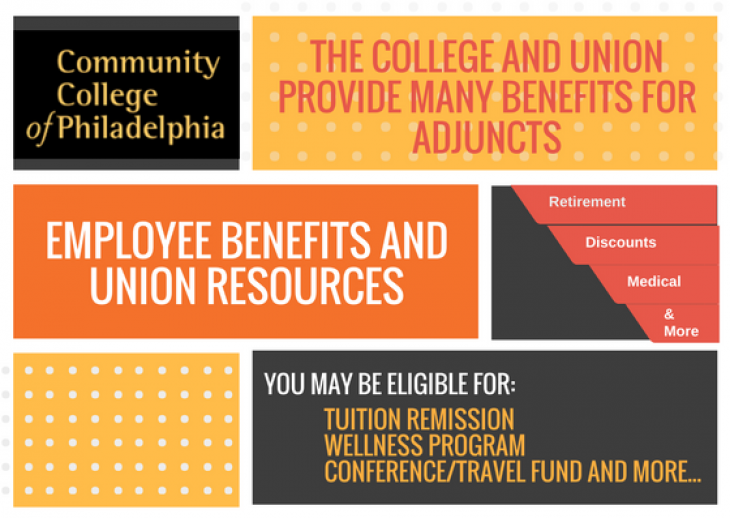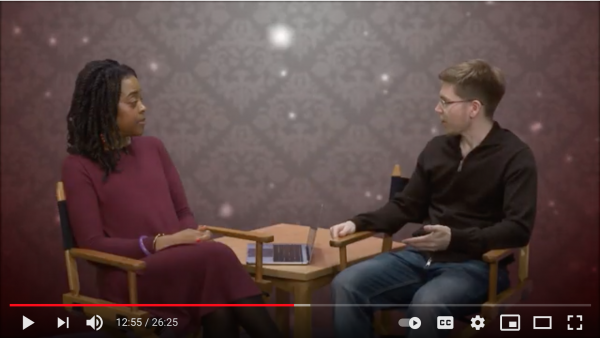Employee Benefits and Union Resources

Employee Benefits
As an adjunct faculty member, you are eligible for certain benefits. Some of these benefits require that you enroll, make a contribution, or complete certain paperwork.
Questions about benefits?
Get in touch with Lolita Lukes in Human Resources: (215) 751-8034 or llukes@ccp.edu.
Employee Benefit Quick Links
- Overview of Adjunct Employee Benefits including Medical, Dental, Drug, and Life Coverage; Retirement Benefits; Tuition Remission; and Short-Term Disability and Travel Fund.
- Detailed Description of Benefit Eligibility
- Adjunct Benefit Forms
- Wellness Program
- Complete List of Employee Discounts
Union Resources
Through this site we hope to provide you with basic info on CCP's union and to help you to connect to and raise your issues with the union.
The union office is located in BR-63 and you can reach the union via phone (215-568-8600) or by email (aft2026@gmail.com).
About the Faculty and Staff Federation of CCP
Since 1970, the Faculty and Staff Federation of Community College of Philadelphia (FSFCCP) has helped to make CCP a good place to work. Our members are divided into three bargaining units: Full-Time Faculty (FTF), Classified Employees (CE), and Adjunct and Visiting Lecturer Faculty (PT/VL). The PT/VL bargaining unit has been recognized since 1982. We are proud of our history of working together for three fair contracts. We are affiliated with the American Federation of Teachers, AFT-Pennsylvania, and the AFL-CIO. The union bargains for contracts, responds to grievances, and supports faculty. For more information, visit the AFT 2026 website.
Interview with our union co-president
Click below to watch a video with AFT 2026 Co-President Junior Brainard (English) on how the union benefits part-time faculty:
Union Quick Links
- Union membership application form
- PT Teaching Rates: from 2018-2022 Contract
- PT/VL Memorandum of Agreement for 2018-2022 (details modifications to be made to 2011-2016 contract)
- Complete Part-Time Contract for 2011-2016
- Seniority Lists

